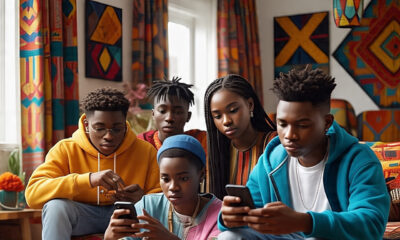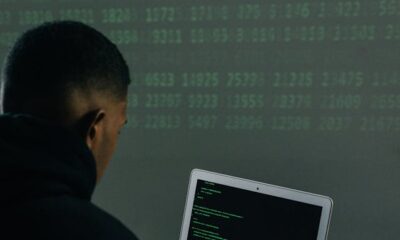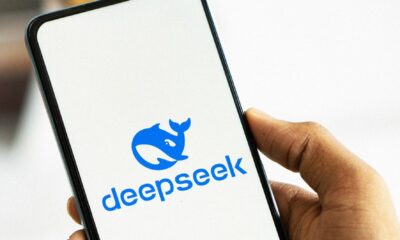Features
Osama Tahir: COVID-19, Contact Tracing & the Privacy Safety Conundrum
From contact tracing apps to facial recognition, governments have turned to their surveillance capabilities in order to identify high-risk sections of the population and track their movements to enforce quarantines and curb the spread of the virus.
 Coronavirus is an unprecedented challenge for the whole world. The pandemic has shaken every aspect of life, forcing us to deal with this once-in-a-lifetime problem in ways that we are not even remotely accustomed to. Social distancing, remote working, and the preventive efforts to contain the spread of the virus are all features of life that are still very new to us.
Coronavirus is an unprecedented challenge for the whole world. The pandemic has shaken every aspect of life, forcing us to deal with this once-in-a-lifetime problem in ways that we are not even remotely accustomed to. Social distancing, remote working, and the preventive efforts to contain the spread of the virus are all features of life that are still very new to us.
Every country has followed a different approach to tackle this crisis but there are common themes evident in the responsive efforts taken by most countries. For instance, in most parts of the world, we’ve had our movement restricted while we wait for the virus to die out and a vaccine to be made available.
But there’s one crucial component in the response to COVID-19 that comes at a heavy price but is nonetheless quite effective for maintaining public health, if rightly implemented. That is, surveillance technologies.
From contact tracing apps to facial recognition, governments have turned to their surveillance capabilities in order to identify high-risk sections of the population and track their movements to enforce quarantines and curb the spread of the virus.
Turning to surveillance for rescue appears to be a natural recourse in these dangerous times, but there are serious privacy repercussions that these surveillance initiatives represent, to the detriment of the people. And if history is any indicator, surveillance has never meant well for the preservation of democratic principles and institutions of any society either.
This brings us to consider a difficult conundrum: is the violation of individual privacy necessary in the fight against coronavirus?
The Case of East Asian Countries
The strictest forms of surveillance during Coronavirus has been implemented by South Asian countries including Taiwan, China, Hong Kong, Singapore, and South Korea. In Taiwan, a form of consensual surveillance is in place where sharing of data between citizens and authorities is driving the policies and decisions at the government level.
However, there are some red flags in Taiwan’s approach. For instance, an American student in the country was visited by police to ask why his phone was turned off. Law enforcement is hooked to people’s geolocation information through their cell phones, which are programmed to send a notification if any citizen’s phone goes off for more than 15 minutes.
Draconian? It certainly appears that way. But Taiwan’s epidemic control program during COVID-19 is one of the most successful in the world. Taiwan is not the only country to have deployed its surveillance capabilities to great effect.
South Korea is one of the only few countries that managed to get by without imposing a statewide lockdown when hit by Coronavirus. The government uses a combination of contact tracing apps, CCTV footage, facial recognition technology, and credit card transactions to keep a track on its citizen and identify those that might be carrying the virus.
Combined with South Korea’s exceptional healthcare facilities, the country has kept a tight lid on the spread of the virus so successfully that they didn’t even need to impose a lockdown. The country traded privacy of its citizens for public health.
China, despite being the epicenter of Coronavirus, is also on the path to recovery, faster than many other countries. The use of highly invasive contact tracing apps and facial recognition tech have played a key role in implementing strict social distancing and quarantine measures. In spite of the fact that this same level of surveillance enables China to suppress media and information (as many websites and even unblocking apps such as VPN services are restricted in the country), there’s no denying that without such mass level of data sharing, China might not have been able to recover as fast.
Facts from these countries suggest that a high level of surveillance and the resulting sacrifice of privacy may be a necessary sacrifice when up against a life-changing global threat. However, Western countries have not been so amenable to the institution of invasive surveillance, even during this devastating pandemic.
Maintaining Balance of Health and Privacy
The challenge of Coronavirus is only one aspect of the current crisis. The responsive strategies for halting Coronavirus in its tracks and restore normalcy to our lives have added an additional set of unique challenges – balancing public health and individual privacy.
The Western attitude to mass surveillance are almost the diametric opposite of those found in Eastern countries, even as coronavirus continues to wreak havoc through society. In the West, humam right activists, as well as the general public, keep close tabs on governmental initiatives that threaten social freedoms and rights, including that of privacy.
These concerns led to privacy guidelines such as the GDPR and CCPA in Europe and the US respectively, giving privacy stronger legal protections in an age where digital technologies have made it all to easy for institutions to access user data, often without permission.
Although these guidelines have forced companies and organizations to treat user information with more respect, acknowledging their right to informed consent, there are loopholes that can be exploited by companies. On top of that, the constant privacy violations from Google, Facebook and the Big Tech, in general, have harmed the public trust in any initiative that can potentially lead to exposure of sensitive data.
Nonetheless, Western countries have had their fair share of privacy-abusing surveillance measures with the UK’s Investigatory Powers Act, the US’s Patriot Act, and many other countries with similar legislation that legalize exposure of citizen’s private data.
Even so, pressure groups and privacy campaigners in the West have made it difficult to carry on with state surveillance initiatives and the poor way in which lockdowns are organized in the US and the UK suggests that they haven’t enjoyed the same ease as their Eastern counterparts when planning to implement their surveillance apparatus to deal with Coronavirus.
Amidst warnings from experts that the present emergency could be used as an excuse by governments to enhance their surveillance powers so that privacy becomes an obsolete concept, the privacy versus public health debate has been renewed, presenting us with extremely difficult questions to navigate.
On the one hand, we are faced with the challenge of saving lives, and our mass data sharing capabilities affords a way to detect patients and implement a containment strategy. On the other hand, there is the risk of heightened surveillance becoming a permanent component of our lives in a post-corona era, threatening the loss of our democratic freedoms and rights.
This is why it is essential to strike a balance in a way that privacy is only compromised when it is absolutely needed for public health initiatives to be successful. While we might have to accept a temporary loss of our privacy, it is imperative for each and everyone of us to monitor any changes in government policies closely, and raise voices against any form of surveillance that appears extraneous and overly controlling.
Only by a collectively conscious and socially responsible effort – where we constantly demand justifications and limits to the proposed surveillance scheme the government seems interested to introduce – can we pull ourselves out of this pandemic with our privacy and civil liberties intact.
The situation may be the toughest we have ever seen, but it also presents us with the opportunity to fight for a society where health, safety, and ignored individual rights – such as privacy – co-exist for the benefit of our present, as well as future generations to come.






















